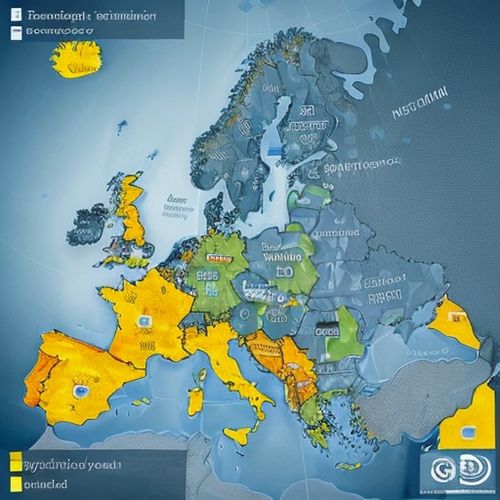The demand for paternity testing in Germany has seen a notable rise in recent years, reflecting broader societal shifts and evolving family dynamics. While the country maintains strict regulations surrounding such tests, the increasing accessibility of private DNA testing services has sparked debates about ethics, privacy, and the legal implications of uncovering biological truths. Unlike some nations where paternity tests are routine, Germany’s approach is more cautious, balancing individual rights with the potential emotional fallout for families.
Legal Framework and Restrictions
Germany’s stance on paternity testing is among the most restrictive in Europe. Under German law, paternity tests require the consent of all parties involved, including the mother, the presumed father, and, if applicable, the child. Unauthorized testing, such as secretly collecting a child’s DNA sample, is illegal and can result in hefty fines or even criminal charges. This legal rigor stems from a desire to protect privacy and prevent the destabilization of family units. Critics argue these laws are overly paternalistic, while supporters emphasize the importance of safeguarding children’s interests and maintaining familial harmony.
The German Civil Code explicitly addresses paternity disputes, allowing courts to order DNA tests in cases where paternity is contested. However, even court-ordered tests must adhere to strict procedural guidelines. For instance, if a man denies paternity, he can petition the court for a test, but the mother retains the right to refuse on behalf of the child. This creates a complex legal landscape where biological truth often clashes with emotional and social considerations.
The Rise of Private Testing and Cross-Border Solutions
Despite legal hurdles, many Germans turn to private laboratories, often based abroad, to bypass domestic restrictions. Companies in neighboring countries like Switzerland or the Netherlands offer mail-in DNA testing kits, allowing individuals to submit samples discreetly. These tests, while legally inadmissible in German courts, provide personal clarity for those questioning paternity. The phenomenon has led to concerns about unregulated testing and the potential for misuse, such as unauthorized profiling or data breaches.
Advocates of private testing argue that individuals have a right to know their biological heritage, especially in cases where child support or inheritance is contested. They point to countries like the United States, where at-home paternity tests are widely available, as a model for greater transparency. However, German authorities remain wary, citing the risk of emotional harm to children and the erosion of trust within families. The tension between personal autonomy and state oversight continues to fuel discussions about reforming current laws.
Cultural Attitudes and Social Stigma
Cultural perceptions of paternity testing in Germany differ markedly from those in other Western nations. The topic is often shrouded in secrecy, with many viewing it as a last resort rather than a routine verification. Societal norms emphasize the sanctity of family bonds, and admitting doubts about paternity can carry significant stigma. This reluctance is reflected in the relatively low rate of court-ordered tests compared to countries with more permissive regulations.
Psychologists and social workers in Germany frequently encounter cases where paternity disputes lead to prolonged emotional distress. Children, in particular, may struggle with identity issues if they discover their biological father is not the person who raised them. Some experts argue that Germany’s restrictive laws inadvertently exacerbate these problems by driving testing underground, where results may be mishandled or misinterpreted. Others contend that the current system prioritizes stability over truth, a trade-off that not all families find acceptable.
Ethical Dilemmas and Future Directions
The ethical dimensions of paternity testing in Germany are complex. On one hand, knowledge of biological parentage can empower individuals to make informed decisions about their lives. On the other, it can unravel carefully constructed family narratives, leaving lasting scars. The German Ethics Council has periodically revisited the issue, weighing the benefits of genetic transparency against the potential for harm. Their recommendations often emphasize the need for counseling and mediation alongside any testing process.
Looking ahead, advancements in DNA technology and the globalization of genetic testing services will likely pressure Germany to reconsider its policies. Some legal scholars propose a middle ground, such as allowing anonymous testing for personal knowledge while maintaining strict controls for legal purposes. Whatever the outcome, the debate over paternity testing in Germany underscores a broader question: how much weight should society give to biological truth when it conflicts with emotional and social realities?
As Germany navigates these challenges, its approach may serve as a case study for other nations grappling with similar issues. The balance between individual rights and collective well-being remains delicate, and the resolution will shape not only legal frameworks but also the very fabric of family life in the years to come.

By Eric Ward/Apr 19, 2025

By Sophia Lewis/Apr 19, 2025

By George Bailey/Apr 19, 2025

By George Bailey/Apr 19, 2025

By Grace Cox/Apr 19, 2025

By Natalie Campbell/Apr 19, 2025

By Sarah Davis/Apr 19, 2025

By Michael Brown/Apr 19, 2025

By George Bailey/Apr 19, 2025

By Victoria Gonzalez/Apr 19, 2025

By Christopher Harris/Apr 19, 2025

By Natalie Campbell/Apr 19, 2025

By Sophia Lewis/Apr 19, 2025

By James Moore/Apr 19, 2025

By Natalie Campbell/Apr 19, 2025

By Emily Johnson/Apr 19, 2025

By James Moore/Apr 19, 2025

By Amanda Phillips/Apr 19, 2025

By Emily Johnson/Apr 19, 2025

By Noah Bell/Apr 19, 2025